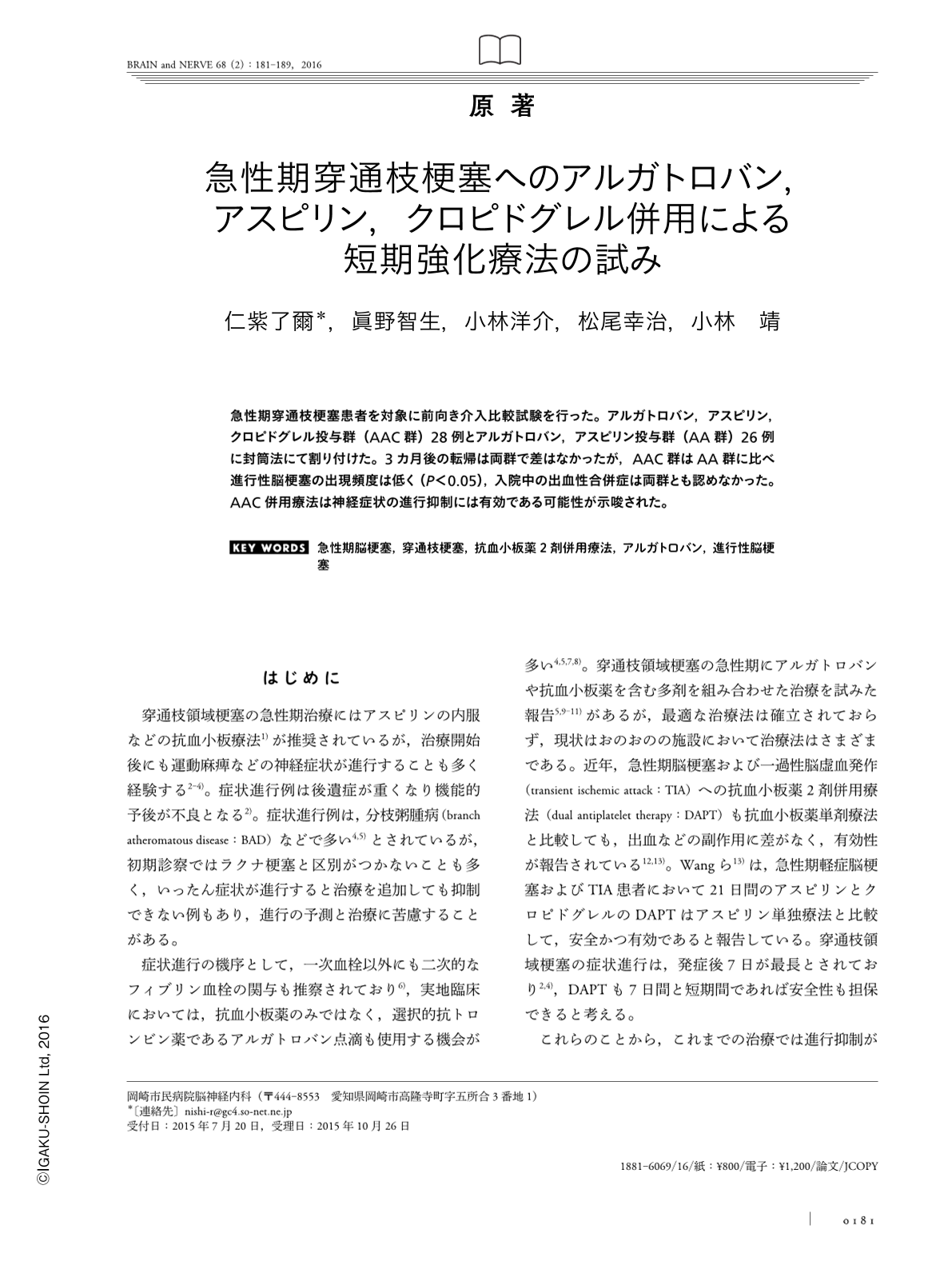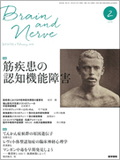Japanese
English
- 有料閲覧
- Abstract 文献概要
- 1ページ目 Look Inside
- 参考文献 Reference
急性期穿通枝梗塞患者を対象に前向き介入比較試験を行った。アルガトロバン,アスピリン,クロピドグレル投与群(AAC群)28例とアルガトロバン,アスピリン投与群(AA群)26例に封筒法にて割り付けた。3カ月後の転帰は両群で差はなかったが,AAC群はAA群に比べ進行性脳梗塞の出現頻度は低く(P<0.05),入院中の出血性合併症は両群とも認めなかった。AAC併用療法は神経症状の進行抑制には有効である可能性が示唆された。
Abstract
Treatment to prevent progressive neurological deficits in acute penetrating artery infarction (API) is clinically important, but has not yet been established. This study aims to investigate the efficacy and safety of argatroban, aspirin, and clopidogrel combination therapy for API. Patients with API (lacunar infarcts or branch atheromatous disease) admitted within 48 hours after onset were enrolled. We assigned them to argatroban, aspirin, and clopidogrel (AAC) group or argatroban and aspirin (AA) group. In both groups, blood pressure was controlled to near or below 180/105 mmHg in the admission period. We defined progressing stroke as a worsening of two or more points in the National Institutes of Health Stroke Scale score on the seventh day of admission. Fifty-four patients were enrolled. We assigned 28 patients to the AAC group, and 26 patients to the AA group. There were no significant differences in background factors between the two groups. The incidence of progressing stroke was significantly higher in the AA group (P<0.05). Intracranial hemorrhage or any other bleeding was not seen in the admission period in either group. Our findings suggest that the AAC combination therapy may positively affect progressive neurological deficits in API patients.
—(Received July 20, 2015; Accepted October 26, 2015; Published February 1, 2016)

Copyright © 2016, Igaku-Shoin Ltd. All rights reserved.


